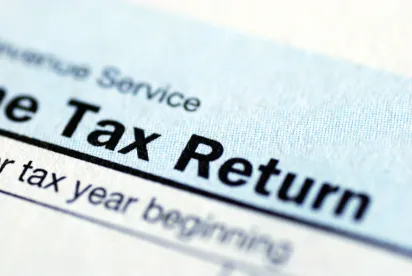With the filing season for 2019 tax returns up and running, it is easy to fall prey to the lure of return preparers who offer to reduce your tax liability significantly or promise that you will receive a large tax refund. Recognizing this as a continuing problem, the IRS has issued a news release cautioning taxpayers to be wary of certain tax return preparers. In addition, when facing a tax problem with the IRS, those warnings could be extended to firms offering tax relief. As the old adage goes, if it sounds too good to be true, it probably is.
What is a Ghost Preparer?
According to the IRS, a ghost preparer does not sign a tax return they prepare. Unscrupulous ghost preparers will print the return, then tell the taxpayer to sign and mail it to the IRS. For e-filed returns, the ghost preparer will refuse to digitally sign as the paid preparer.
By law, anyone who is paid to prepare or assists in preparing federal tax returns must have a valid preparer tax identification number (PTIN). Paid preparers must sign and include their PTIN on the return. Not signing a return is a red flag that the paid preparer may be looking to make a fast buck by promising a big refund or charging fees based on the size of the refund.
Ghost tax return preparers may also:
-
require payment in cash only and not provide a receipt
-
invent income to qualify their clients for tax credits
-
claim fake deductions to boost the size of the refund
-
direct refunds into their bank account, not the taxpayer's account.
First and foremost, tax returns, refund claims, and various other tax forms and documents submitted to the IRS, are signed under penalties of perjury. Whether the taxpayer has prepared the return or someone has prepared it on his or her behalf, the taxpayer is ultimately responsible for what is reported on that return - the amount of income reported, the deductions claimed or the entitlement to certain credits. If the return is found to be erroneous, it is the taxpayer that could be liable for penalties for negligence (20 percent penalty) or fraud (75 percent penalty) and can be referred for criminal prosecution.
How Do I Chose a Tax Return Preparer?
When selecting a tax return preparer, taxpayers should do their homework and choose wisely. Make sure the preparer has the proper credentials and qualifications. Be wary of preparers that promise large refunds or claim they can get larger refunds than other preparers. Be cautious of return preparers that base their fee on the amount of the refund you receive and/or require payment in cash only. Regardless of the tax preparer you choose, always review the tax return carefully before signing the return or the electronic filing form. Ask questions if something is not clear. And make sure that the preparer's PTIN is included on the return, the preparer has signed the return and the preparer has provided you with a copy of the return.
If you find that you owe money to the IRS or if your tax return is being audited by the IRS, you may need the assistance of a professional to help you resolve your tax problem. Only tax attorneys, CPAs and enrolled agents can represent taxpayers before the IRS in all matters, including audits, collections and appeals. Of those professionals, only tax attorneys have attorney/client privilege. When you need the assistance of a professional, key factors to look for are experience directly related to the tax issue you are facing, an understanding of your particular circumstances and concerns, and integrity. Be wary of the services offered and the promises made by tax resolution companies or tax relief firms. Whether the company is a nationwide firm or a local company, these firms prey on taxpayers during their most vulnerable time by promising to resolve their case for pennies on the dollar, including removal of liens and abatement of penalties.
If you owe current or back taxes, or are facing criminal charges/civil penalties for tax fraud, having the right attorney representing you and protecting your rights will make a significant difference in your well-being and in the resolution of your case.



 />i
/>i

